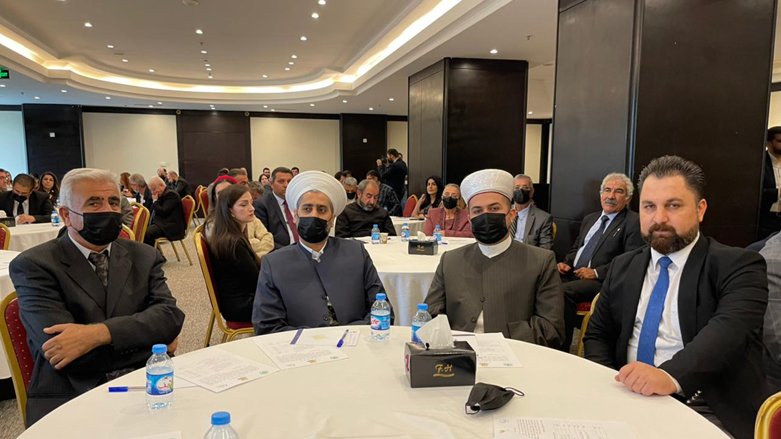Kurdistan Region commemorates International Religious Freedom Day

ERBIL (Kurdistan 24) – The Alliance of Iraqi Minorities (AIM) network held a forum in Erbil in cooperation with the Kurdistan Region Ministry of Endowment and Religious Affairs and the Norwegian People's Aid (NPA) Organization on Wednesday.
The forum was attended by Pshtiwan Sadiq, the Kurdistan Region Minister of Endowment and Religious Affairs, as well as civil society organizations and religious leaders and representatives from all the various religions in the region.
"We are very happy that Kurdistan Region became a beautiful symbol of coexistence for the religious and ethnic minorities in the Middle East," Sadiq said.

He emphasized that the Kurdistan Region should protect and even promote its peaceful coexistence.
"The religious leaders from all different religions have been playing a crucial and positive role in enlightening people on religious coexistence," Sadiq told Kurdistan 24.
"We are proud that the Kurdistan Region gets invited to all religious freedom events and conferences throughout the world to present its successful experiment," he added.

Amir Othman, Director of Religious Coexistence Section at the Kurdistan Region Ministry of Endowment and Religious Affairs, told Kurdistan 24 from the forum's hall that his ministry commemorates the day every year in cooperation with civil society organizations.
"The people invited to this event are religious leaders from all different religions in the region, local and international civil society organizations, and the decision-makers from the government officials," Othman said. "Language, culture, and laws related to minorities were the main topics of discussions in today's forum."

"At the end of the forum, the attendees made recommendations for further developing the religious freedom and coexistence in the region to the Kurdistan Region Council of Ministers through the Ministry of Endowment," Othman added.
The International Religious Freedom Day is observed every October 27, the date the Religious Freedom Act of 1998 was passed. The act established an international religious freedom office in the US State Department and an independent, bipartisan US Commission on International Religious Freedom. Both bodies can monitor religious freedom around the world, make recommendations and support the work of the US Administration and Congress on the topic.
It is observed around the world even though it is American.
